Shenzhen Wesort Optoelectronics Co., Ltd.
Address:Building 29, Longwangmiao Industrial Zone, Fuyong street, Bao'an District, Shenzhen, Guangdong Province, China.
Phone:+86 181 2370 6862
Coffee is much more than just a beverage—it’s an experience shaped by the quality and consistency of the beans used. Over the years, coffee producers have continually sought ways to improve bean quality, reduce waste, and ensure a uniform flavor profile in every cup. One breakthrough that has dramatically transformed the industry is optical sorting technology. This long-form article explores how modern optical sorting machines are revolutionizing coffee bean processing, drawing insights from industry leaders and cutting-edge manufacturers.
The Evolution of Coffee Bean Sorting
Traditionally, coffee bean sorting was a labor-intensive process that relied on manual inspection. Workers would sort beans by hand, identifying defects, discolorations, and impurities. However, this method was not only time-consuming but also prone to human error and inconsistency. As global demand for high-quality coffee grew, the need for an automated, precise, and efficient sorting solution became undeniable.
Enter optical sorting—a technology that leverages advanced imaging, sensors, and artificial intelligence to identify and remove undesirable beans. According to Counter Culture Coffee, optical sorting represents one of the most exciting advancements in coffee processing, offering a new level of accuracy and efficiency that was previously unattainable in manual sorting processes.

How Optical Sorting Technology Works
At the heart of optical sorting is a sophisticated integration of high-speed cameras, sensors, and intelligent algorithms. Here’s a closer look at the process:
1. High-Resolution Imaging:
Optical sorters use high-resolution cameras to capture detailed images of coffee beans as they pass through the machine at high speeds. This imaging technology is capable of detecting minute differences in color, shape, and size.
2. Sensor Analysis and AI Integration:
Advanced sensors analyze these images in real time. Machine learning algorithms compare the captured images against preset standards for quality. The system is finely tuned to distinguish between healthy beans and those that are discolored, malformed, or otherwise defective. This technology, as highlighted , allows for precise removal of even the smallest impurities, ensuring that only the best beans continue along the production line.
3. Automated Sorting Mechanism:
Once defective beans are identified, the system activates an air jet or mechanical diverter to remove them from the batch. This process is executed in milliseconds, which means the machine can handle large volumes of beans without sacrificing accuracy.

Benefits of Optical Sorting in Coffee Processing
The introduction of optical sorting technology has brought significant improvements across several key areas of coffee production:
- Enhanced Quality and Consistency:
Optical sorters ensure that only beans meeting strict quality standards are used, resulting in a more consistent flavor profile and improved overall quality of the final product. The removal of defective beans not only enhances taste but also prevents undesirable flavors from affecting the brew.
- Increased Efficiency and Reduced Labor Costs:
Automated sorting eliminates the need for labor-intensive manual inspection. This not only speeds up the production process but also reduces labor costs and minimizes human error, leading to a more efficient workflow.
- Minimized Waste and Sustainability Benefits:
By precisely targeting only the defective beans, optical sorters significantly reduce waste. This precise separation contributes to a more sustainable production process by ensuring that a greater proportion of the harvested beans meet the high standards required for premium coffee.
- Improved Traceability and Data Collection:
Modern optical sorters come equipped with data-collection capabilities that allow producers to track the quality of their beans throughout the sorting process. This data can be used to refine production methods, troubleshoot issues, and maintain high-quality standards over time.

Innovations Driving Modern Coffee Sorters
Leading companies in the field have continuously pushed the boundaries of optical sorting technology. For instance, WESORT has developed an advanced colour sorter that utilizes artificial intelligence and state-of-the-art imaging to detect even the subtlest color differences. Their system is designed to adapt and learn from each sorting cycle, improving accuracy and efficiency with every use.
companies like WESORT have integrated these innovations into large-scale production lines, making it possible to process vast quantities of coffee beans without compromising on quality. Their optical sorting solutions are engineered for robustness, speed, and precision—qualities that are indispensable in today’s competitive coffee market.
Industry Impact and Case Studies
The widespread adoption of optical sorting technology is having a transformative effect on the coffee industry. Producers are now able to deliver consistently high-quality products that meet the growing demands of discerning consumers. For example:
- Quality Control:
Coffee roasters and producers report a significant reduction in the number of defective beans reaching the roasting stage. This leads to better tasting coffee and fewer quality-related complaints from customers.
- Operational Efficiency:
The automation provided by optical sorters has streamlined processing operations, enabling companies to scale production without a proportional increase in labor costs. This efficiency has been crucial for meeting rising global demand.
- Market Competitiveness:
By ensuring a consistent and high-quality product, producers using optical sorting technology can position themselves as premium brands in the marketplace. The investment in high-tech sorting solutions often translates into better market prices and stronger brand loyalty.
Future Perspectives
The future of coffee bean processing looks bright, with optical sorting technology set to become even more advanced. Continued advancements in artificial intelligence and sensor technology are expected to further refine sorting accuracy and speed. Integration with Internet of Things (IoT) platforms will enable real-time monitoring and predictive maintenance, ensuring that optical sorting systems are always operating at peak performance.
Moreover, as the coffee industry continues to emphasize sustainability, the precision of optical sorters in reducing waste will become an increasingly important selling point. Future machines may also incorporate more sophisticated data analytics, providing coffee producers with deeper insights into their production processes and opportunities for continuous improvement.
Optical sorting technology represents a significant leap forward in coffee bean processing. By leveraging high-resolution imaging, advanced sensors, and intelligent algorithms, modern optical sorters ensure that only the finest beans make it to your cup. This technology not only enhances product quality and consistency but also drives operational efficiency and sustainability across the coffee supply chain.
Coffee is much more than just a beverage—it’s an experience shaped by the quality and consistency of the beans used. Over the years, coffee producers have continually sought ways to improve bean quality, reduce waste, and ensure a uniform flavor profile in every cup. One breakthrough that has dramatically transformed the industry is optical sorting technology. This long-form article explores how modern optical sorting machines are revolutionizing coffee bean processing, drawing insights from industry leaders and cutting-edge manufacturers.
The Evolution of Coffee Bean Sorting
Traditionally, coffee bean sorting was a labor-intensive process that relied on manual inspection. Workers would sort beans by hand, identifying defects, discolorations, and impurities. However, this method was not only time-consuming but also prone to human error and inconsistency. As global demand for high-quality coffee grew, the need for an automated, precise, and efficient sorting solution became undeniable.
Enter optical sorting—a technology that leverages advanced imaging, sensors, and artificial intelligence to identify and remove undesirable beans. According to Counter Culture Coffee, optical sorting represents one of the most exciting advancements in coffee processing, offering a new level of accuracy and efficiency that was previously unattainable in manual sorting processes.

How Optical Sorting Technology Works
At the heart of optical sorting is a sophisticated integration of high-speed cameras, sensors, and intelligent algorithms. Here’s a closer look at the process:
1. High-Resolution Imaging:
Optical sorters use high-resolution cameras to capture detailed images of coffee beans as they pass through the machine at high speeds. This imaging technology is capable of detecting minute differences in color, shape, and size.
2. Sensor Analysis and AI Integration:
Advanced sensors analyze these images in real time. Machine learning algorithms compare the captured images against preset standards for quality. The system is finely tuned to distinguish between healthy beans and those that are discolored, malformed, or otherwise defective. This technology, as highlighted , allows for precise removal of even the smallest impurities, ensuring that only the best beans continue along the production line.
3. Automated Sorting Mechanism:
Once defective beans are identified, the system activates an air jet or mechanical diverter to remove them from the batch. This process is executed in milliseconds, which means the machine can handle large volumes of beans without sacrificing accuracy.

Benefits of Optical Sorting in Coffee Processing
The introduction of optical sorting technology has brought significant improvements across several key areas of coffee production:
- Enhanced Quality and Consistency:
Optical sorters ensure that only beans meeting strict quality standards are used, resulting in a more consistent flavor profile and improved overall quality of the final product. The removal of defective beans not only enhances taste but also prevents undesirable flavors from affecting the brew.
- Increased Efficiency and Reduced Labor Costs:
Automated sorting eliminates the need for labor-intensive manual inspection. This not only speeds up the production process but also reduces labor costs and minimizes human error, leading to a more efficient workflow.
- Minimized Waste and Sustainability Benefits:
By precisely targeting only the defective beans, optical sorters significantly reduce waste. This precise separation contributes to a more sustainable production process by ensuring that a greater proportion of the harvested beans meet the high standards required for premium coffee.
- Improved Traceability and Data Collection:
Modern optical sorters come equipped with data-collection capabilities that allow producers to track the quality of their beans throughout the sorting process. This data can be used to refine production methods, troubleshoot issues, and maintain high-quality standards over time.

Innovations Driving Modern Coffee Sorters
Leading companies in the field have continuously pushed the boundaries of optical sorting technology. For instance, WESORT has developed an advanced colour sorter that utilizes artificial intelligence and state-of-the-art imaging to detect even the subtlest color differences. Their system is designed to adapt and learn from each sorting cycle, improving accuracy and efficiency with every use.
companies like WESORT have integrated these innovations into large-scale production lines, making it possible to process vast quantities of coffee beans without compromising on quality. Their optical sorting solutions are engineered for robustness, speed, and precision—qualities that are indispensable in today’s competitive coffee market.
Industry Impact and Case Studies
The widespread adoption of optical sorting technology is having a transformative effect on the coffee industry. Producers are now able to deliver consistently high-quality products that meet the growing demands of discerning consumers. For example:
- Quality Control:
Coffee roasters and producers report a significant reduction in the number of defective beans reaching the roasting stage. This leads to better tasting coffee and fewer quality-related complaints from customers.
- Operational Efficiency:
The automation provided by optical sorters has streamlined processing operations, enabling companies to scale production without a proportional increase in labor costs. This efficiency has been crucial for meeting rising global demand.
- Market Competitiveness:
By ensuring a consistent and high-quality product, producers using optical sorting technology can position themselves as premium brands in the marketplace. The investment in high-tech sorting solutions often translates into better market prices and stronger brand loyalty.
Future Perspectives
The future of coffee bean processing looks bright, with optical sorting technology set to become even more advanced. Continued advancements in artificial intelligence and sensor technology are expected to further refine sorting accuracy and speed. Integration with Internet of Things (IoT) platforms will enable real-time monitoring and predictive maintenance, ensuring that optical sorting systems are always operating at peak performance.
Moreover, as the coffee industry continues to emphasize sustainability, the precision of optical sorters in reducing waste will become an increasingly important selling point. Future machines may also incorporate more sophisticated data analytics, providing coffee producers with deeper insights into their production processes and opportunities for continuous improvement.
Optical sorting technology represents a significant leap forward in coffee bean processing. By leveraging high-resolution imaging, advanced sensors, and intelligent algorithms, modern optical sorters ensure that only the finest beans make it to your cup. This technology not only enhances product quality and consistency but also drives operational efficiency and sustainability across the coffee supply chain.
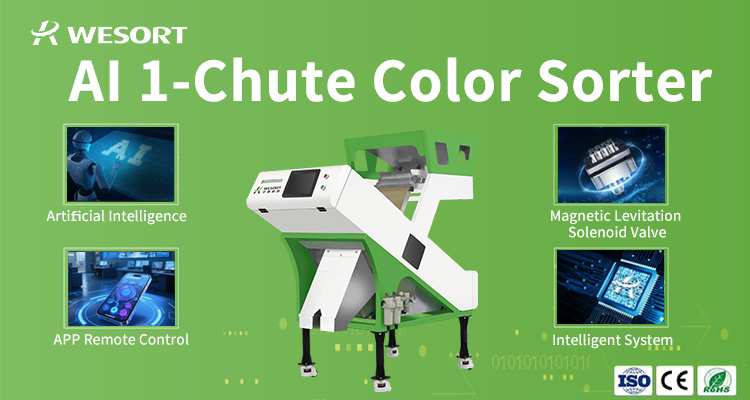
In modern agriculture, food processing, and recycling, quality control plays a vital role. This is where an optical sorter comes in. Many buyers often ask: What is an optical sorter? What does it do? How much does it cost? And how is WESORT optical...
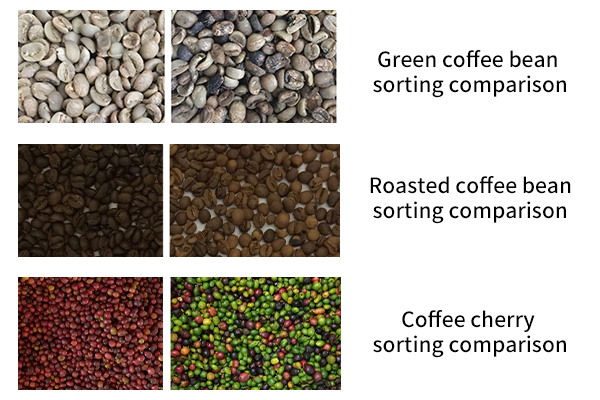
In the coffee industry, the quality of the final cup often depends on the smallest details during processing. One crucial step is removing defective beans, foreign materials, and color inconsistencies. This is where a coffee bean color sorter plays...

Coffee processing is a complex and meticulous task that involves several stages to transform raw coffee cherries into the high-quality beans we enjoy in our morning brew. One crucial step in this process is the sorting of coffee beans based on thei...

In the world of walnut processing, even the smallest imperfection can significantly impact product quality, market price, and brand reputation. Mold, insect damage, broken pieces, or inconsistent color are common defects that reduce the value of wa...
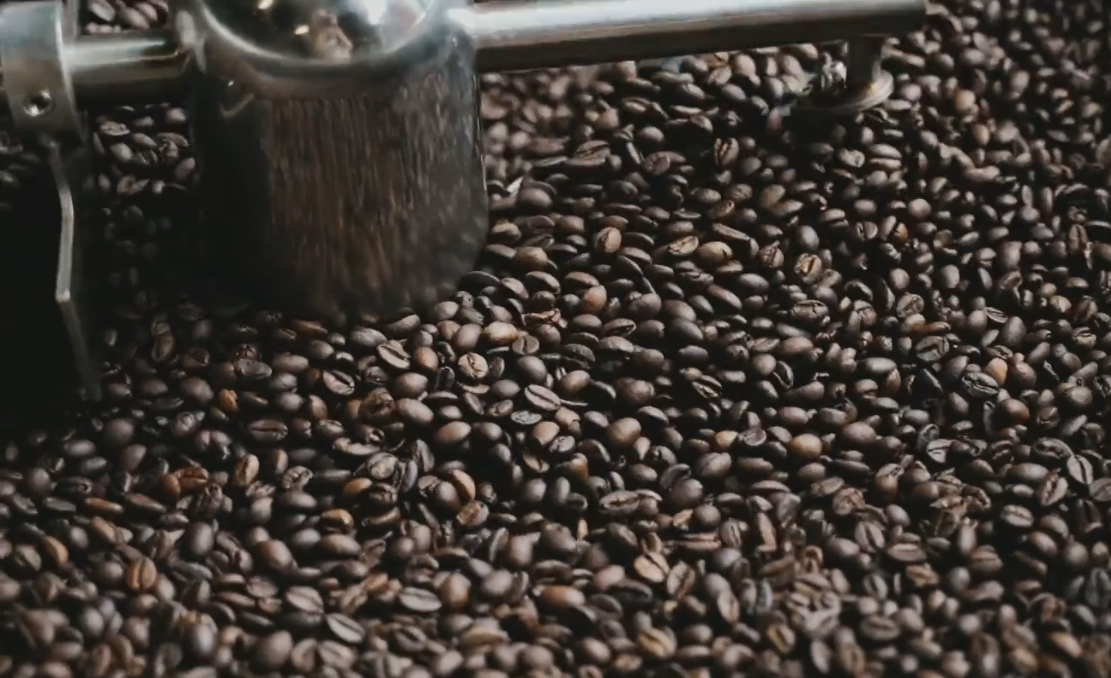
From green bean exporters to specialty coffee roasters, every producer faces the same challenge: how to remove defects efficiently while protecting valuable beans. Problems such as mold, fermentation damage, insect bites, black beans, broken beans,...
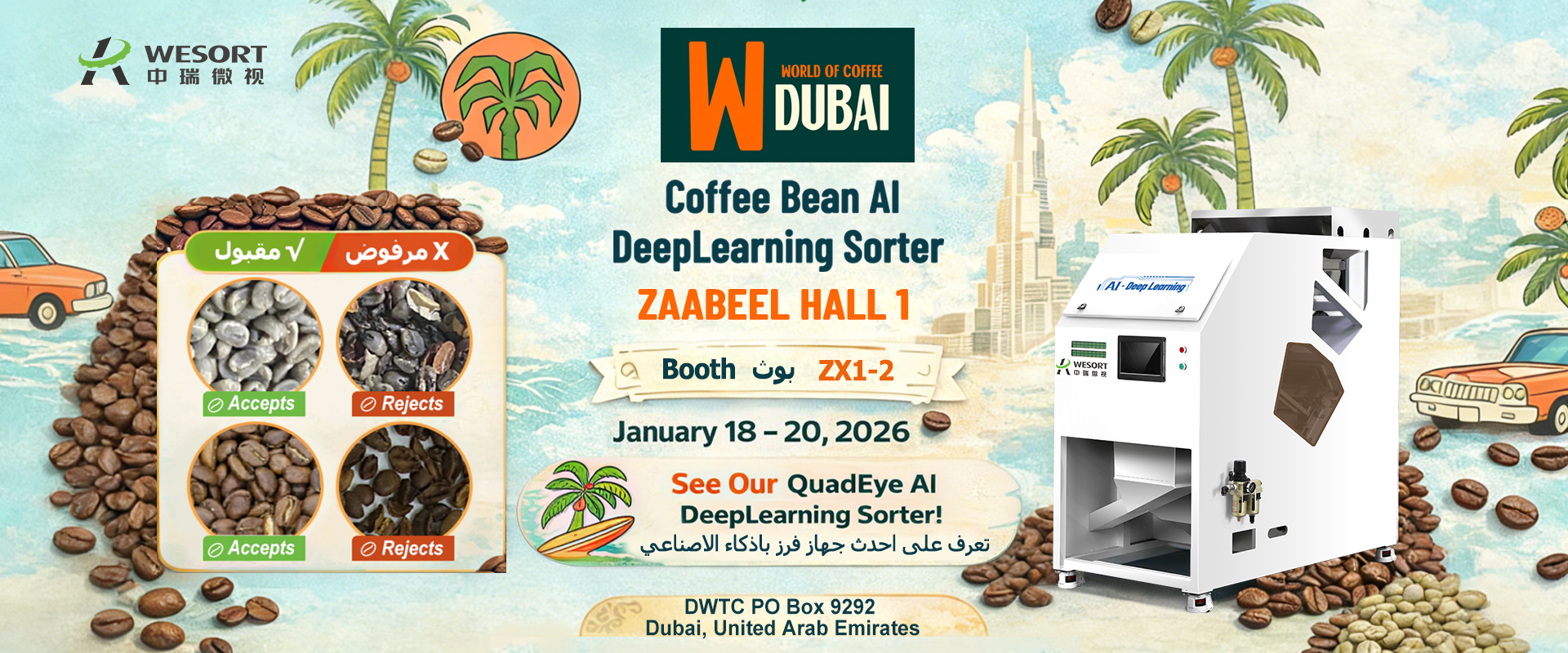
To meet the growing demand for premium and specialty coffee, sorting accuracy must go beyond traditional color-based systems. The QuadEye 360 AI Coffee Bean Sorter, developed by WESORT, represents the next generation of intelligent coffee bean so...

Dear friend, If you are attending World of Coffee Dubai 2026. we would like to invite you to visit WESORT. We will showcase our QuadEye 360 AI Coffee Bean Sorter, featuring 360° four-side inspection, AI deep learning models, near-zero breakage,...

Meta Description: Looking for the top hazelnut sorting machine manufacturer? WESORT offers advanced hazelnut color sorters with AI deep learning to efficiently remove defects, pests, and foreign materials. Boost your hazelnut processing efficienc...
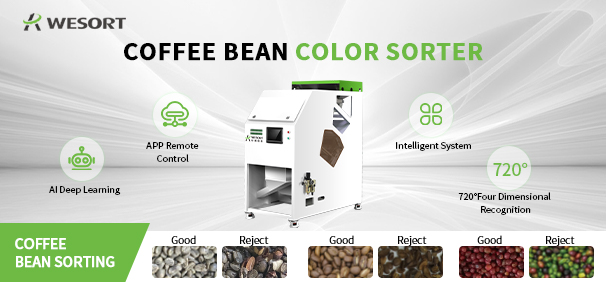
With the growing popularity of specialty coffee, the purity of coffee beans determines the aroma and taste of a cup of coffee. Achieving 99.9% purity requires high-performance coffee bean sorting equipment. Among Chinese coffee bean color sorter ma...
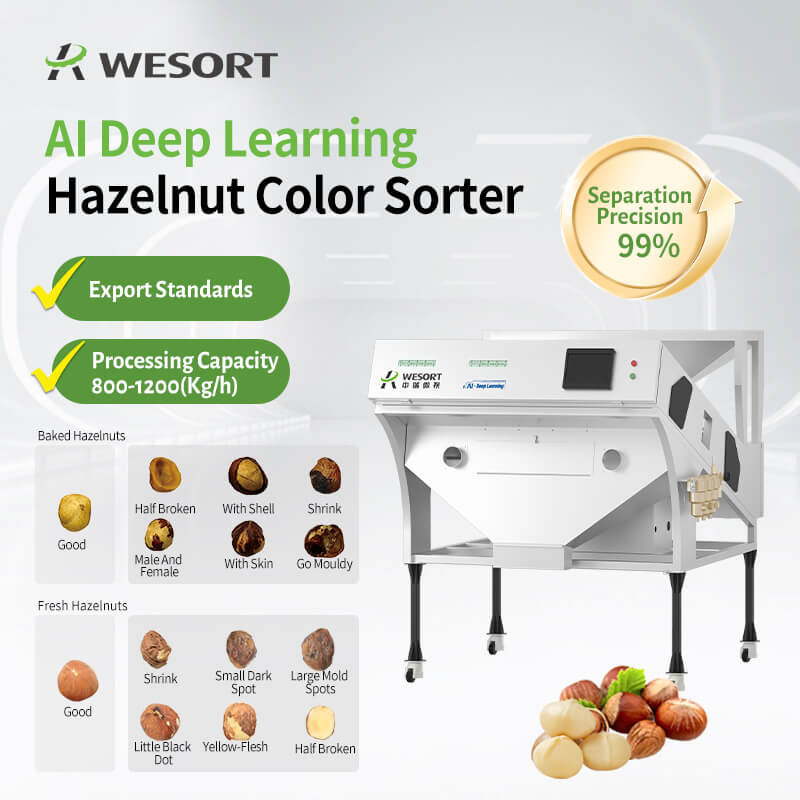
What's the most vexing issue in the hazelnut industry chain? It's not yield, but quality. Defects like mold, wrinkled skin, and foreign matter not only reduce product value but can also put export orders at risk. The solution isn't to increase the ...
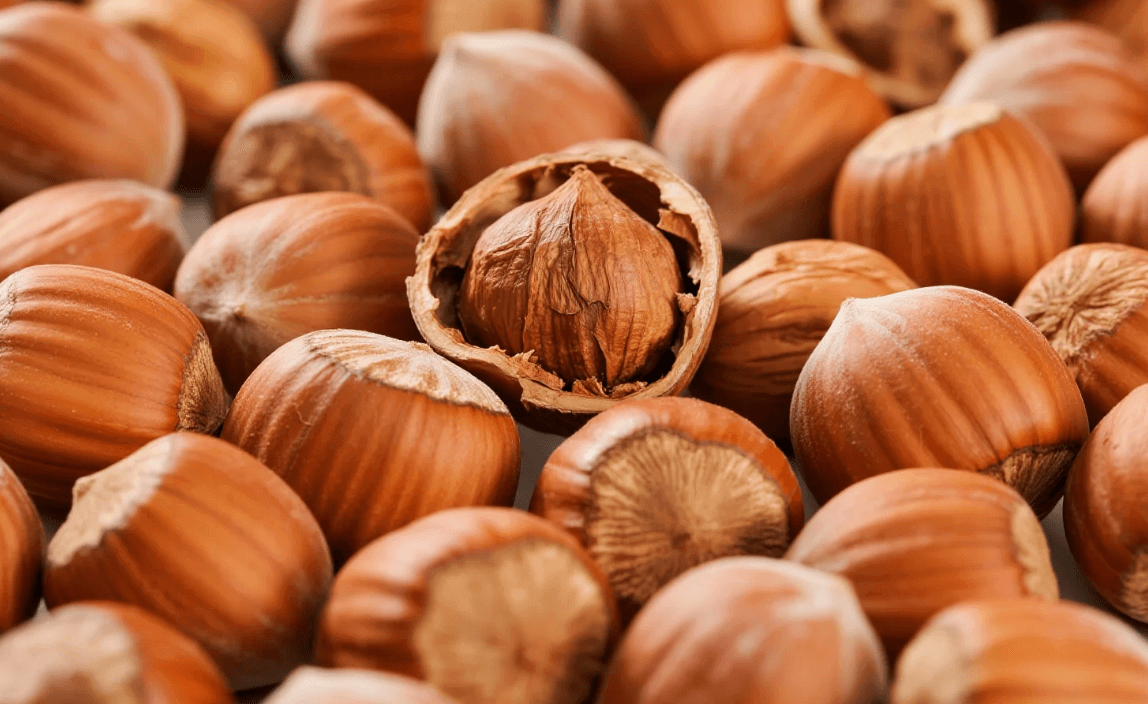
Every hazelnut tells a story—about the soil it grew in, the care during harvest, and the precision of its processing. Yet between farm and final product, hidden defects like mold, insect damage, and discoloration can turn premium hazelnuts into cos...

Plastic waste recycling is one of the most pressing challenges in today’s sustainability-driven world. Proper plastic sorting ensures high-quality recycled materials, reduces environmental impact, and improves profitability for recycling businesses...
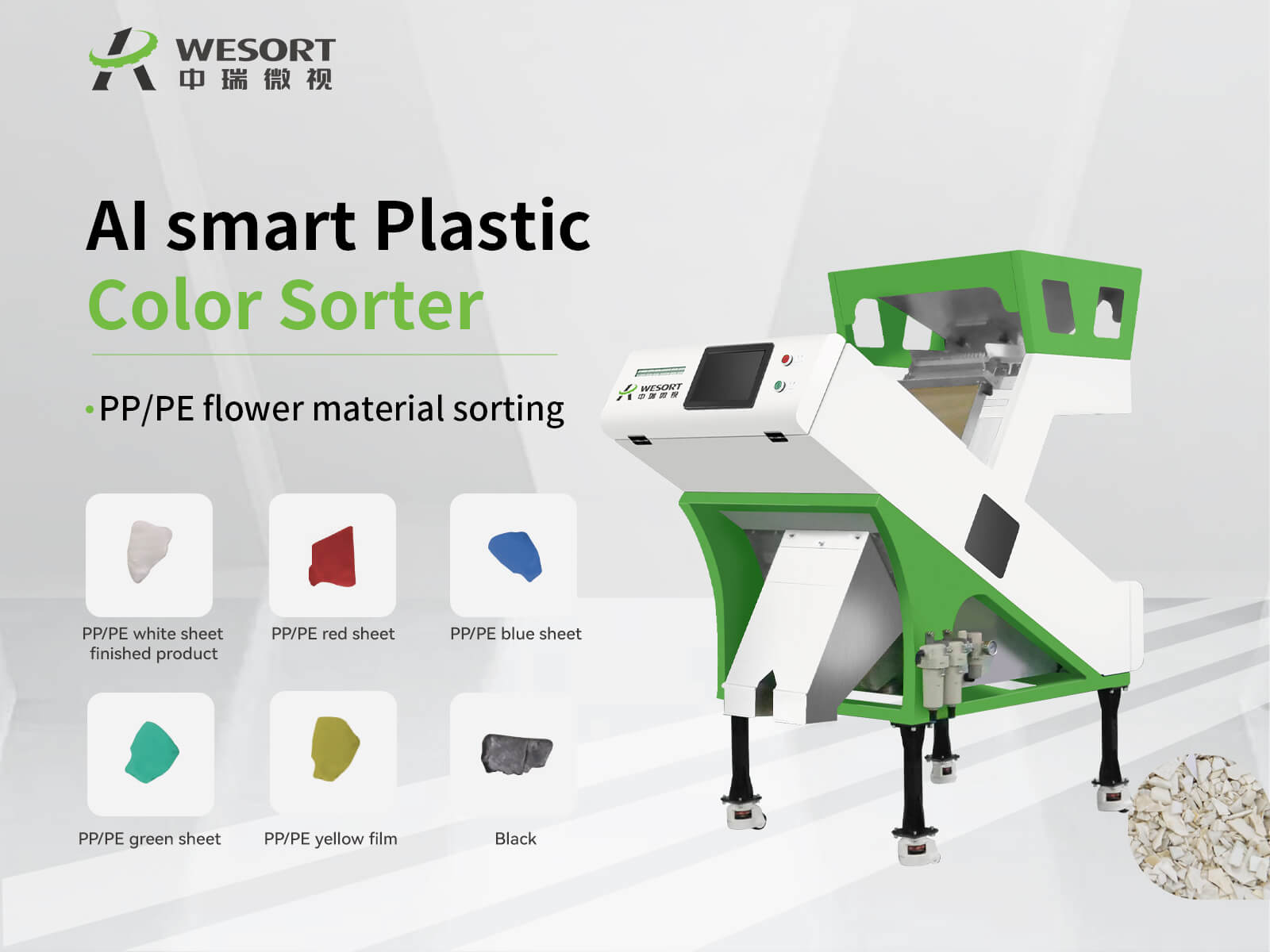
In the plastic recycling industry, purity and efficiency directly determine profitability. As global demand for recycled plastics increases, manufacturers need advanced solutions to separate impurities, improve yield, and ensure consistent product ...
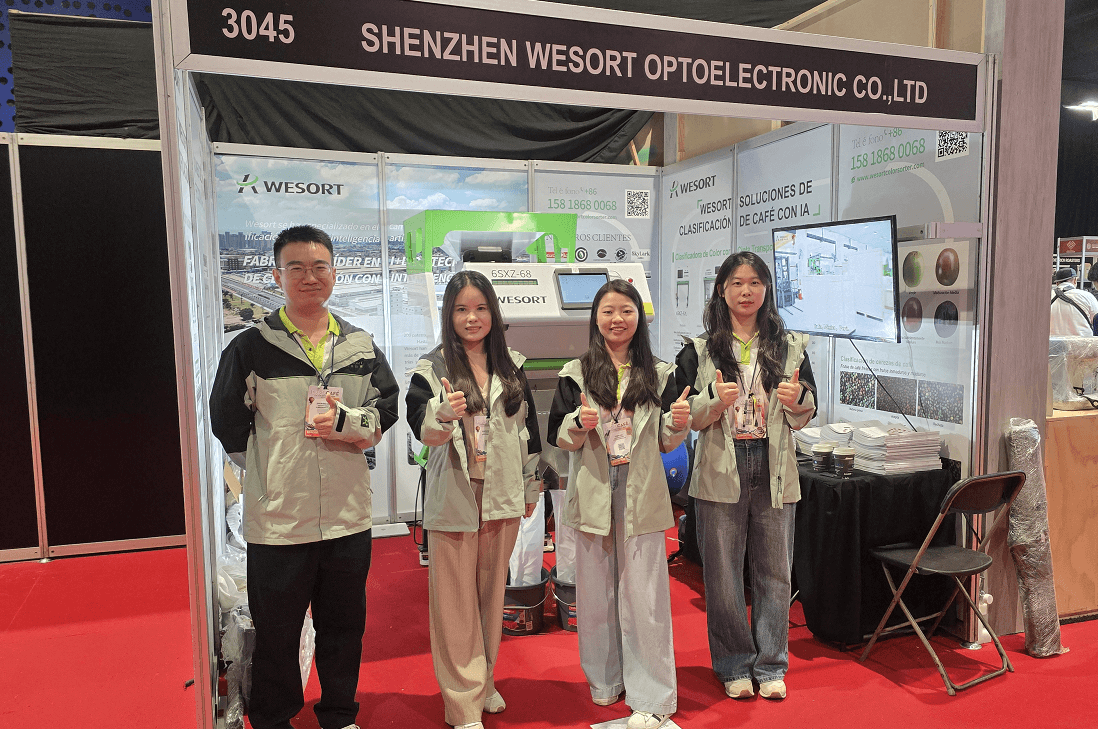
In Mexico, coffee is more than just a drink — it’s a culture, a tradition, and a vital industry. Yet, challenges like impurities, pest damage, and uneven coloration often diminish the value of even the most carefully cultivated beans. At EXPO CAFÉ...
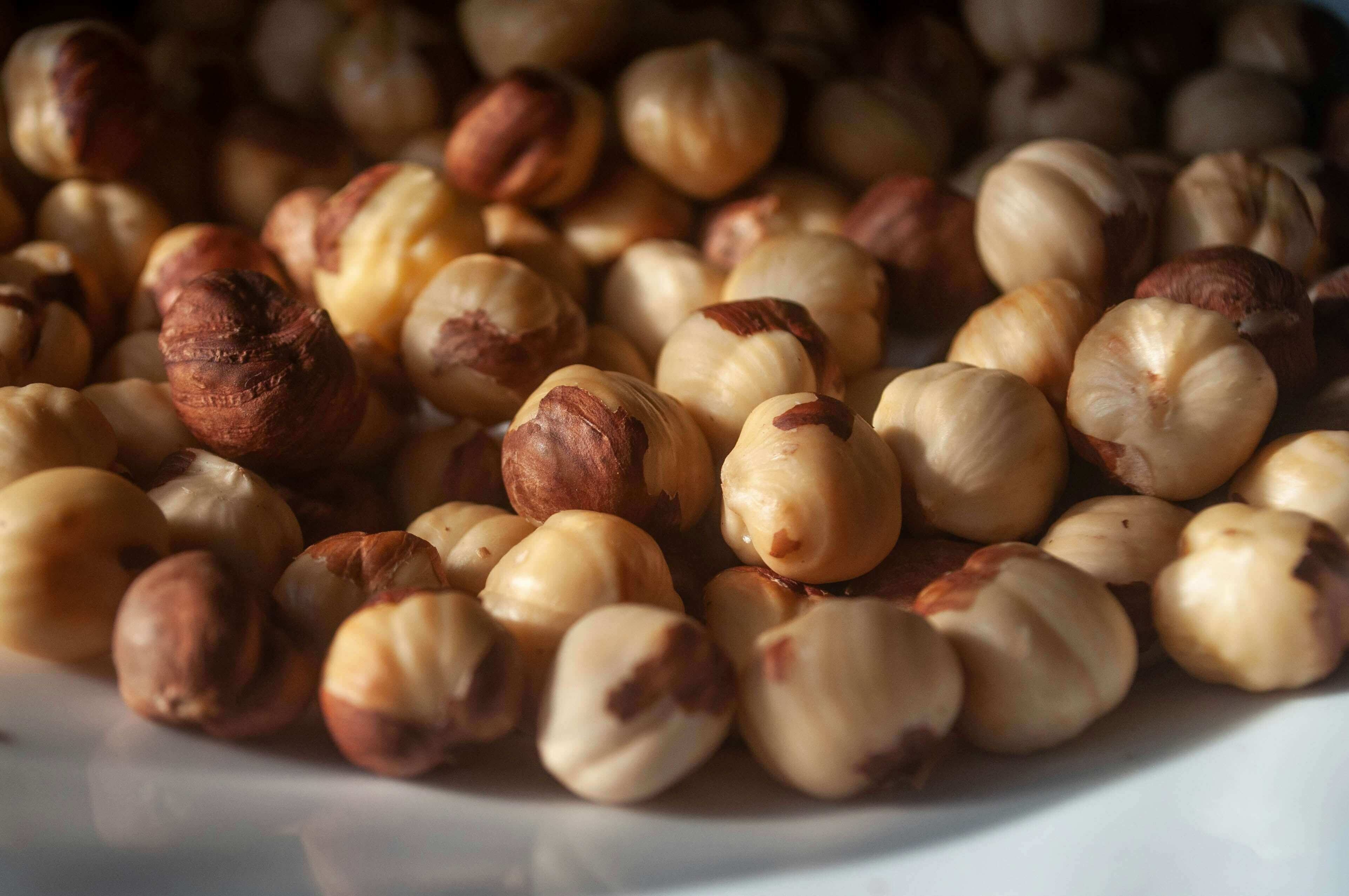
The global demand for hazelnuts continues to rise, driven by the growth of confectionery, bakery, and healthy snack markets. As consumption increases, so does the importance of quality control. Hazelnut processors face mounting pressure to deliver ...
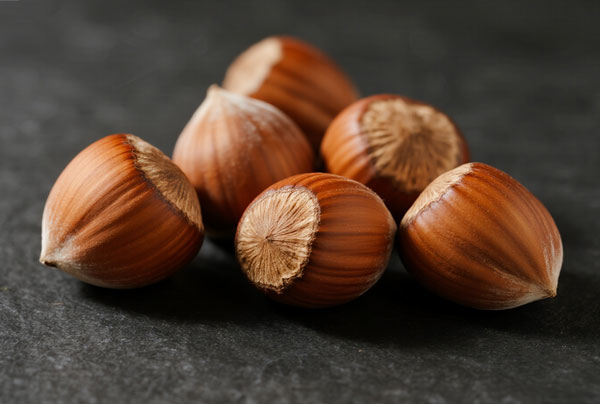
Hazelnuts are widely used in confectionery, bakery, and snacks, where product quality directly affects market value. However, hazelnut processing often faces serious challenges, such as pest infestation, seasonal labor shortages, and inconsistent m...
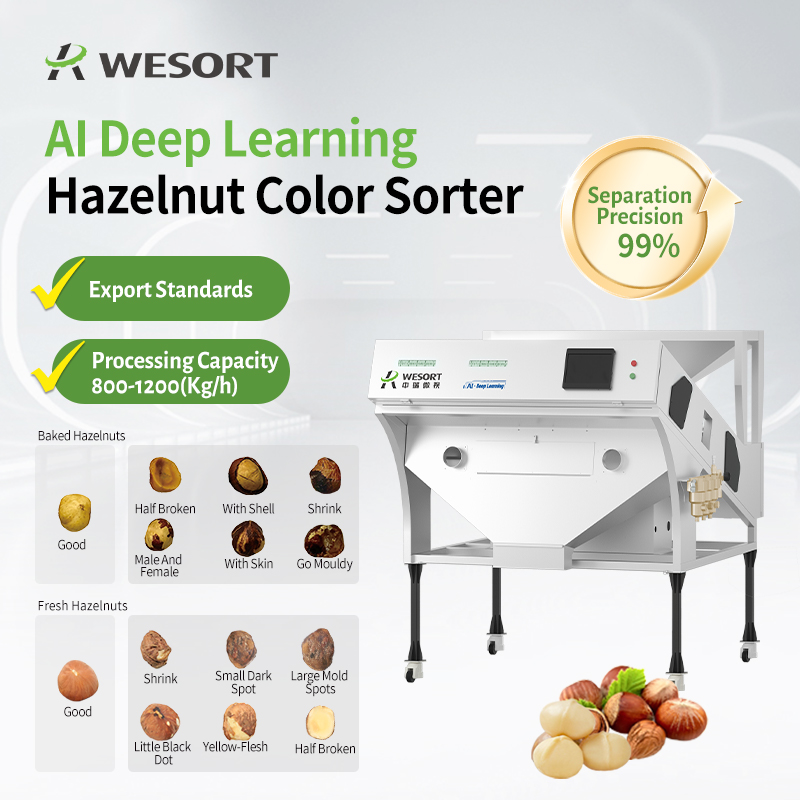
Hazelnut is the nut of the hazel and therefore includes any of the nuts deriving from species of the genus Corylus, especially the nuts of the species Corylus avellana. It is also known as cobnut or filbert nut according to species. A cob is roughl...
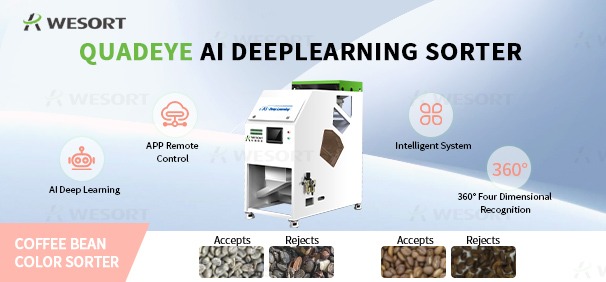
When you enjoy a smooth cup of coffee, you may not realize how much work goes into ensuring its purity and flavor. From harvest to cup, every step matters—and one of the most critical yet often overlooked stages is coffee bean sorting. Common Cof...
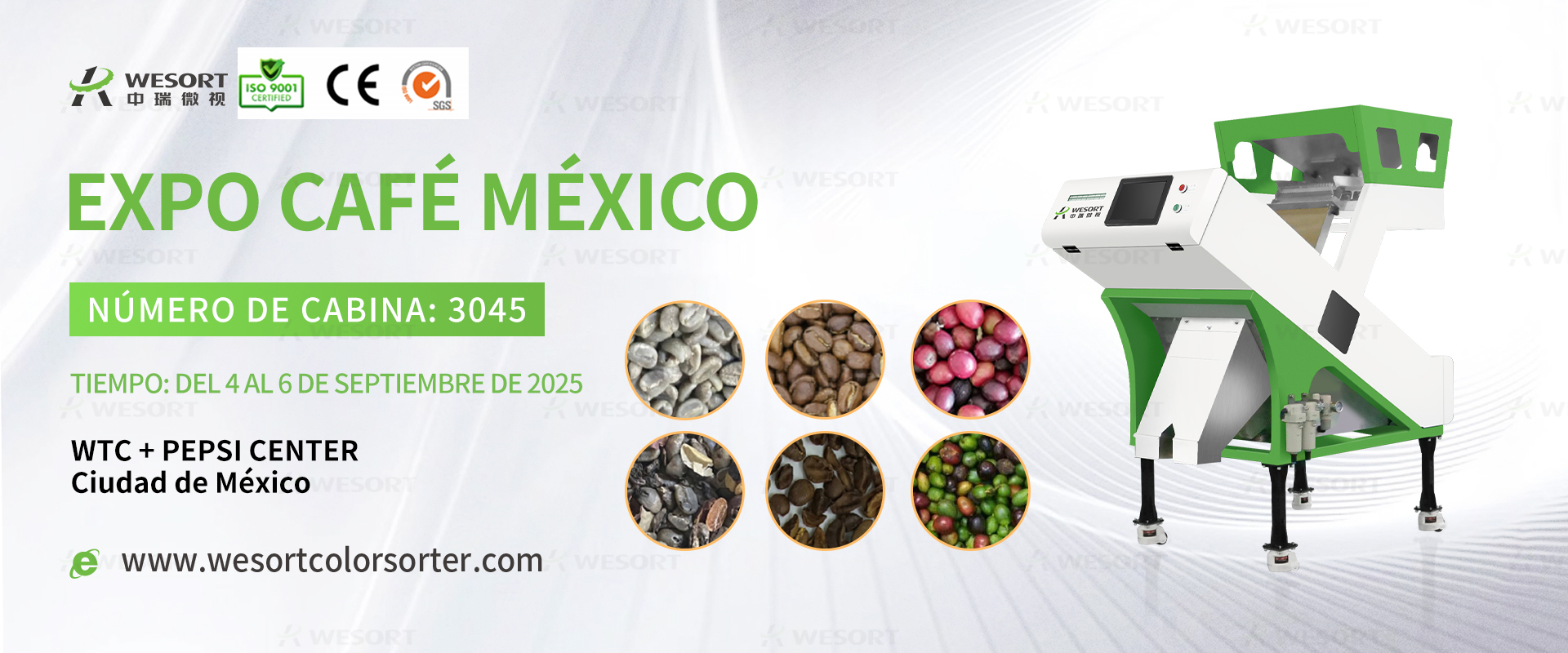
Dear Coffee Industry Partners, The Mexican Coffee Shop Expo 2025 is just around the corner—and WESORT , a leader in intelligent sorting technology, will be there to showcase our core solution for coffee processors: Coffee Bean Color Sorters. Mark...
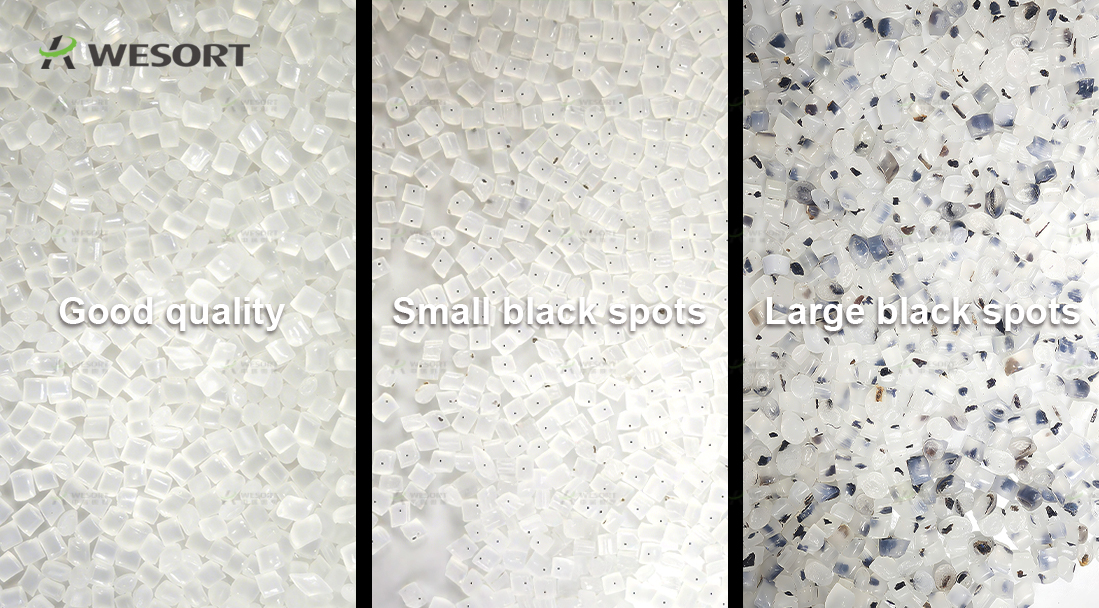
In the plastic pellet production process, color purity often directly determines the product's selling price and market competitiveness. Especially for transparent, white, or light-colored plastic pellets, even tiny black specks can affect the appe...

In modern agriculture, food processing, and recycling, quality control plays a vital role. This is where an optical sorter comes in. Many buyers often ask: What is an optical sorter? What does it do? How much does it cost? And how is WESORT optical...

In the coffee industry, the quality of the final cup often depends on the smallest details during processing. One crucial step is removing defective beans, foreign materials, and color inconsistencies. This is where a coffee bean color sorter plays...

Coffee processing is a complex and meticulous task that involves several stages to transform raw coffee cherries into the high-quality beans we enjoy in our morning brew. One crucial step in this process is the sorting of coffee beans based on thei...

In the world of walnut processing, even the smallest imperfection can significantly impact product quality, market price, and brand reputation. Mold, insect damage, broken pieces, or inconsistent color are common defects that reduce the value of wa...

From green bean exporters to specialty coffee roasters, every producer faces the same challenge: how to remove defects efficiently while protecting valuable beans. Problems such as mold, fermentation damage, insect bites, black beans, broken beans,...

To meet the growing demand for premium and specialty coffee, sorting accuracy must go beyond traditional color-based systems. The QuadEye 360 AI Coffee Bean Sorter, developed by WESORT, represents the next generation of intelligent coffee bean so...

Dear friend, If you are attending World of Coffee Dubai 2026. we would like to invite you to visit WESORT. We will showcase our QuadEye 360 AI Coffee Bean Sorter, featuring 360° four-side inspection, AI deep learning models, near-zero breakage,...

Meta Description: Looking for the top hazelnut sorting machine manufacturer? WESORT offers advanced hazelnut color sorters with AI deep learning to efficiently remove defects, pests, and foreign materials. Boost your hazelnut processing efficienc...